A Rawap for Mr. David L. Harrington
Sweaty and Exhausted from the Sunday Market, we stopped into a very local establishment, which we selected by the loud music and overflowing of its clientele. While we were ordering, a fight broke out between two of these persons. They began violently grabbing and pushing on each other, dodging dangerously close to the fine woman hard at work making lamb dumplings nearby. This fight was put to a stop when (what I can only assume was) the owner of the establishment appeared from the back, bellowing.
With the fight over, our view of the opposite wall was now clear. And on it we saw hanging a number of official documents, among which was the review from the chinese department of health. On it, a large green unhappy face glared back at us. A key below the frowning visage indicated that it was the least cleanly a restaurant could be and still stay open. In Kashgar. I, however, think that by this point on the journey, we had developed the iron stomachs of seasoned 3rd world adventurers. And, hoping this was indeed the case, we dug in.
Refreshed by some medium cleanly dumplings and hand pulled noodles, doused with an oily chilly sauce, which was quickly becoming my favorite part of Uighur dive restaurants. We remounted the cycles and began asking random pedestrians in giant fur hats where the musical instrument factory was.
A short while later we were riding down a street which was lined exclusively by hand made musical instrument shops. We chose one that looked especially explosive, and stepped inside. The propitiator was raging on one of the same instruments we had seen after dinner the night before. I set in to playing a little of everything he had in the store. Meanwhile scott visited the back, where he found the workshop and another instrument builder, sleeping on the floor.
After much hemming and hawing, we decided that the Rawap which the guy had been playing was the one, and we set into intense negotiations. Originally, the fellow was asking 1800 RMB. Fifteen minutes later we shook our hands over 1000 RMB for the instrument, a hard case, and a set of spare tuning pegs and strings. This was likely not a great deal, but not a rip-off either. We were after all, a couple of white guys in Panama hats.
The instrument was a beauty, covered with inlay of different woods. And the resonating cavity was covered with a large swath of snake skin. As soon as we had made the deal, the entire atmosphere of the joint changed. The guy started smiling. The napping fellow awoke, out came the cigarettes, and the two fellows grabbed instruments from the wall. They began smoking and playing and generally making merry. There was much laughing, exchanging of business cards and Scott and I were treated to a mini-performance.
We shook hands one last time and set back out on bikes.
At the giant central Kashgar China post office, we found that the customs master was not in on sundays and we had to come back the next day. So first thing the next morning, not long after the sun had begun heat up the streets, we arrived back at the post office. Outside, we stopped into a corner store and bought 10 packs of chinese cigarettes.
These, along with three Uighur cassette tapes from the Sunday Market, went into the case with the rawap.
Inside the post office, we travelled from table to table, and eventually upstairs in search of the customs master. In stark contrast to the hectic and noisy hubbub of the downstairs, the upstairs room was silent and empty. After a short time, a woman emerged from a nest of cubicals in the back and we were told the customs master was out to lunch. So we sat down with the rawap and started to deal whist. Before we had even dealt a hand, the woman came over and began to wildly gesticulate, yelling, and pointing us towards an adjacent door.
No one had come or gone our entire time in this upstairs room, but now, it seemed the customs master was back from lunch. We opened the door to find a small and intense man, sitting on a couch and staring into an abacus, which lay on the coffee table in front of him. He looked up at us and our rawap. “What is that?” he asked. “A rawap,” we replied. He looked puzzled. “A Uighur instrument,” Scott added in chinese. “Oh, ok, fine. You can go” We stood, looking puzzled. “Go, go.” We left… then returned. “Do we need some kind of a… er… receipt?” “No no no. Go.”
Back downstairs, we moved from counter to counter a little more and then, under the sign which translated itself into english for us as “Synthesize Service,” we finally were invited to open the rawap case. The woman at the counter began to take the cigarettes out one by one smelling them and scrutinizing them inches from her face. She let not a millimeter go un-scrutinized. But, slowly, each pack was accepted, and placed in a neat pile to the side. Until she reached a pack of “Pine” brand cigarettes. There was no Chinese on this pack. And she asked accusingly in chinese, “are these cigarettes?” sniffing the pack deeply. Then she took out the rawap. She plucked it suspiciously, and ran her hands over its long neck and snakeskin top. She shook it to see if anything was inside.
It was then that she saw the cassette tapes. She dropped the rawap like so many paper beer cups and began speaking animatedly. She gestured to her companion postal workers, and picked up the phone. In no time the customs officer was downstairs and snatched up the tapes. “Come with me,” he said to Scott and I. As we walked up the stairs. He asked very seriously “what else did you not tell me about? Do you have any books? Books, do you understand me? Are you sure?” It was now that we realized the problem. He was afraid we were transporting ideas, be they secret government intelligence, or some sort of cultural poison.
Back in his office, he removed a cloth from a large tape-set in the corner of the room. He took our tapes, on by one and put them in. He played them slow and fast, backwards and forwards, moving to different parts of the tape, listening closely. He frowned. The man obviously spoke no Uighur. He got on the horn, and a local woman was called into the office. She listened, and began to shimmy and snap her fingers. This seemed to be the signal he was looking for. And we were sent off.
Back at the counter, another couple, who we believe were from Holland, had a collection of instruments and souvenirs they were trying to send. As we went about repackaging the rawap, the tapes and cigarets, things began to heat up next-door. It seems that they were bumping up against some new rules regarding sending hollow items during the upcoming olympic window. Our woman, realizing that the rawap might be considered one of these and therefor also in breach of the rule, began to hustle us along. She removed five small boxes from under the counter, and we began to slide them one by one over the length of the rawap case, taping them together into one long box.
Things were moving faster and faster. Now the dutch were yelling, and Scott was called in to act as translator. I hurriedly rushed to fill out the form , apply extra tape, and decipher the shipping rates. Scott began to play both sides of the net, helping me and translating the odd phrase next door. I had to address the thing. Faster. Faster. Then there was no pens to be found anywhere. We scrabbled and clawed. Everyone started sweating and the yelling ramped another notch. Then there were pens everywhere, raining from the sky. The woman in front of me slapped a mailing sticker and a customs pass on the rigged boxes and then we were out in the open air of the street.
The sun was shining, people were perusing local shops and stands. All was well. Scott and I turned to each other. We whaled a savage high five and hopped on our cycles.
AsiaWheeling strikes again.













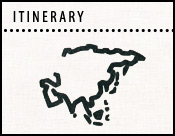
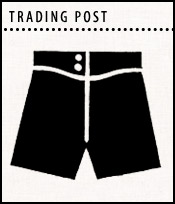
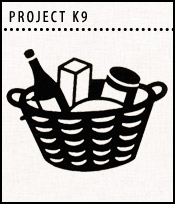
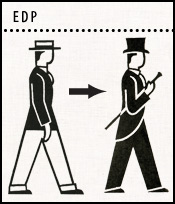
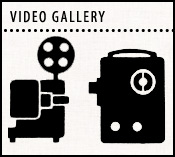
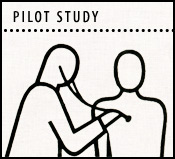
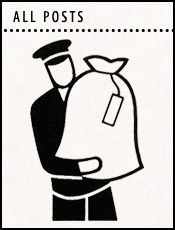





Comments
Great story. Well told. You guys are amazing.
Love,
Mom
[…] arrival music of notes from a Rawap emanated from within our […]
Cool topic. I generally wish to read as much about this as I can.
Post a comment